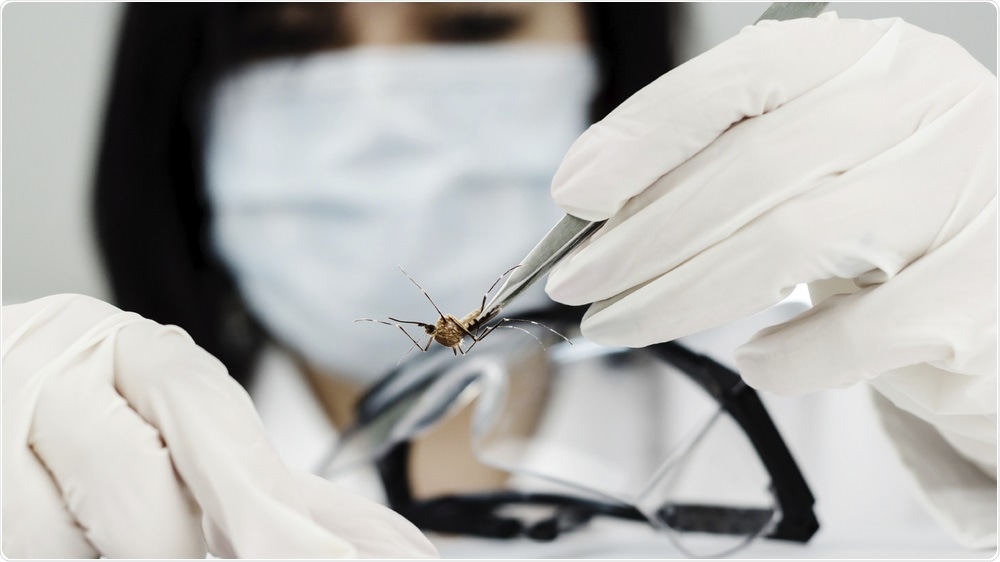Mosquitoes are known to be vectors or bearers of several viral and protozoal infections such as dengue, Zika, yellow fever, Chikungunya, and malaria. These infections are known to infect and even kill millions around the world each year. In order to tackle this vector-borne menace, researchers have genetically engineered mosquitoes that could replace the infection carrying species of the mosquitoes.

750 Million Genetically Engineered Mosquitoes Approved for Release in Florida Keys
The new batch of genetically altered mosquitoes is named OX5034. These have been altered in a manner so that they can produce only female offspring, and these mosquitoes die when they are in their larval stage before they reach their adulthood. This prevents the offspring of these mosquitoes from carrying disease. The male mosquitoes do not bite or infect and feed on plant nectar and juices. Thus they are harmless. This process targets female mosquitoes only. The female mosquitoes need to feed on blood in order to mature their eggs.
Pilot project
Approval from the Environment Protection Agency (EPA) was obtained in May this year. Following this, a pilot project was initiated where these genetically modified species of Aedes aegypti were tested. The genetically altered mosquito release was compared with spraying insecticides in terms of efficacy in preventing the spread of the infections borne by these mosquitoes such as Zika, dengue, Chikungunya, and yellow fever.
The mosquitoes were developed by Oxitec, an American British-based company. They had applied for the release of these mosquitoes in Harris County, Texas, in 2021. The EPA has approved their request after considering the impact of this experiment on human as well as environmental health.
Oxitec CEO Grey Frandsen had said in an earlier statement, "This is an exciting development because it represents the ground-breaking work of hundreds of passionate people over more than a decade in multiple countries, all of whom want to protect communities from dengue, Zika, yellow fever, and other vector-borne diseases."
Plans in Florida
The authorities have approved the release of over 750 million such genetically engineered mosquitoes into Florida Keys region in 2021 and 2022. The State and Federal government had already approved the move earlier.
An experimental use permit was provided for the use of these mosquitoes in Florida in June this year. It was approved by seven agencies in the state. The whole process of approval took nearly a decade. It was in 2009 and 2010 when an outbreak of dengue in Florida had initiated the search for alternatives to mosquito control say authorities. Several avenues had been tried—some of these included insecticide spray, the spread of mosquito larva eating fish, etc. None of them were effective in the long run, said the health authorities from Florida Keys Mosquito Control, and were not cost-effective.
Oxitec was approached in 2012 by the authorities for help. They had then developed the male mosquito named OX513A that would die before adulthood and were sterile and could not reproduce. These would be allowed to mate with the existing females, the researchers had said. Their offspring, if produced, would die in the larval stage. This would limit the population of mosquitoes. This OX513A strain had been tested in Cayman Islands, Panama, and Brazil by Oxitec, which had reported success in vector control.
Objections to "Jurassic Park" experiment
Local environmental advocacy groups were against this idea of the introduction of genetically modified insects that could upend the ecological balance in the environment.
Jaydee Hanson, policy director for the International Center for Technology Assessment and Center for Food Safety, in a statement this week said, "With all the urgent crises facing our nation and the State of Florida — the Covid-19 pandemic, racial injustice, climate change — the administration has used tax dollars and government resources for a Jurassic Park experiment." She added, "Now the Monroe County Mosquito Control District has given the final permission needed. What could possibly go wrong? We don't know, because EPA unlawfully refused to seriously analyze environmental risks, now without further review of the risks, the experiment can proceed."
Dana Perls, food and technology program manager at Friends of the Earth, said, "The release of genetically engineered mosquitoes will needlessly put Floridians, the environment and endangered species at risk in the midst of a pandemic."
Public health campaigns try to convince people of the safety
Public relations campaigns are trying to convince the general population that these genetically modified mosquitoes are males and thus do not bite. The EPA says it has investigated the safety of the program thoroughly and Oxitec has now come up with a second generation of "Friendly mosquito" technology. This new altered male mosquito is called OX5034. It can kill only female mosquitoes and lets the males survive. The modified genes in these males are transmitted to offspring.
Notification before release and plans ahead
The state officials would be notified 72 hours before the release of these genetically modified mosquitoes says the EPA. Tests would be conducted over 10 weeks after release to check if the female mosquitoes died before adulthood.
Phil Goodman, chair of the Florida Keys Mosquito Control Board said, "We heard all the hypotheticals of what a male GMM flying around you may do, but we know exactly what an infected wild female Aedes aegypti mosquito will do. Unfortunately, the need for new technology is now even more evident with the current dengue fever outbreak in the Upper Keys. There are other regions of the Keys with even higher risks, so we should not waste more time." He added, "We now have the regulatory approvals for safety, and we finally have the chance to determine if it works locally. If it does, this may be a real game-changer for mosquito control in the Keys and the world." Oxitec CEO Grey Frandsen added, "Our team is ready to get to work. We couldn't think of a better partner than the FKMCD, and we're looking forward to working with the Keys community to demonstrate the effectiveness."